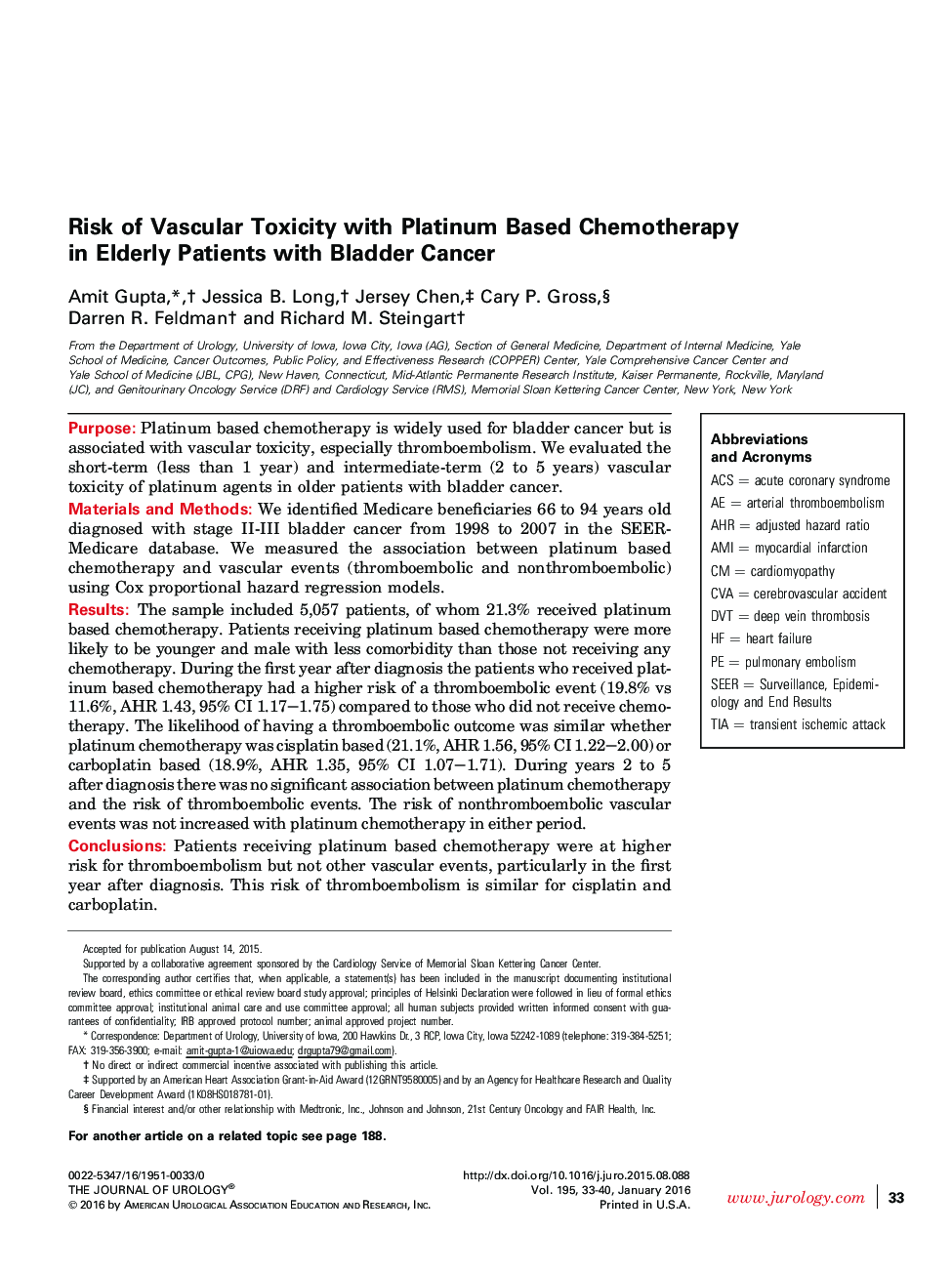| Article ID | Journal | Published Year | Pages | File Type |
|---|---|---|---|---|
| 3859280 | The Journal of Urology | 2016 | 8 Pages |
PurposePlatinum based chemotherapy is widely used for bladder cancer but is associated with vascular toxicity, especially thromboembolism. We evaluated the short-term (less than 1 year) and intermediate-term (2 to 5 years) vascular toxicity of platinum agents in older patients with bladder cancer.Materials and MethodsWe identified Medicare beneficiaries 66 to 94 years old diagnosed with stage II-III bladder cancer from 1998 to 2007 in the SEER-Medicare database. We measured the association between platinum based chemotherapy and vascular events (thromboembolic and nonthromboembolic) using Cox proportional hazard regression models.ResultsThe sample included 5,057 patients, of whom 21.3% received platinum based chemotherapy. Patients receiving platinum based chemotherapy were more likely to be younger and male with less comorbidity than those not receiving any chemotherapy. During the first year after diagnosis the patients who received platinum based chemotherapy had a higher risk of a thromboembolic event (19.8% vs 11.6%, AHR 1.43, 95% CI 1.17–1.75) compared to those who did not receive chemotherapy. The likelihood of having a thromboembolic outcome was similar whether platinum chemotherapy was cisplatin based (21.1%, AHR 1.56, 95% CI 1.22–2.00) or carboplatin based (18.9%, AHR 1.35, 95% CI 1.07–1.71). During years 2 to 5 after diagnosis there was no significant association between platinum chemotherapy and the risk of thromboembolic events. The risk of nonthromboembolic vascular events was not increased with platinum chemotherapy in either period.ConclusionsPatients receiving platinum based chemotherapy were at higher risk for thromboembolism but not other vascular events, particularly in the first year after diagnosis. This risk of thromboembolism is similar for cisplatin and carboplatin.
